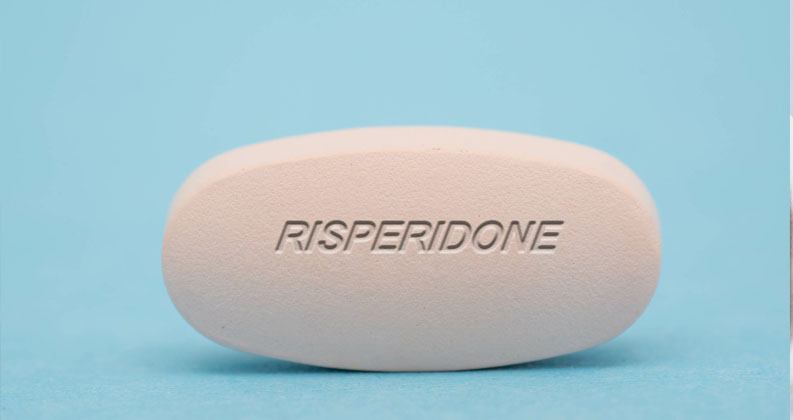
If you’ve never heard of it, you might want to know what Risperdal is used for, and the answer is simple. Risperdal is an atypical antipsychotic drug that is used to treat certain mental or mood disorders, including bipolar disorder, schizophrenia, and even irritability that is associated with autism. With Risperdal, you can think more clearly and enjoy life more. And the way it works is simple: it helps to restore the balance of certain substances that occur naturally in the brain.
Why Risperdal?
Also called a second-generation antipsychotic (SGA), Risperdal comes in many different dosages and can be taken orally as a pill, in liquid form, or even as an injection. What the drug essentially does is rebalance serotonin and dopamine so that mood, thinking, and even your behavior are improved.
Psychotic episodes and even depression are thought to be an imbalance of certain chemicals in the brain, and medications such as Risperdal help balance those chemicals so that your brain functions the way it’s supposed to.
When the doctor prescribes Risperdal to you, the exact dosage is based on your age, response to treatment, medical conditions, and the other medications you’re taking. When you talk to your doctor about maybe getting on Risperdal, make sure that you include all of the products you regularly take, including prescription drugs, nonprescription drugs, birth control pills, herbal and all-natural products, etc.
Since Risperdal comes in many different dosages, your doctor might start you off with a very small dosage and increase it from there once it becomes obvious how you’re going to react to the medication. Naturally, you’ll want to follow the doctor’s exact directions once the medication is prescribed.
Also, you have to take medicine regularly in order to benefit from it. If that seems complicated, just make it a habit to take the medication at the same time every day. Most importantly, keep taking medicine even once you start to feel better, and never get off of the medicine unless you consult with your doctor first. You’ll also want to let the doctor know if anything changes, especially if your condition remains the same or gets worse.
How Should You Use Risperdal?
Risperdal should be taken by mouth either with or without food, depending on what your doctor tells you. Normally, you’ll be taking it once or twice a day. If the doctor gives you the liquid form of this medication, always use the measuring device included with the prescription and not a household spoon. This is because you’ll need the exact dosage in order to benefit from the medication.
If the instructions allow you to, you can mix the dose with a small amount of water, coffee, low-fat milk, or orange juice -- usually, three to four ounces and that’s all. Never mix the medicine with tea or cola. Another tip to keep in mind is to always consume the mixture immediately after mixing it up; in other words, don’t prepare the mixture in advance and take it at a later date.
As far as the doses go, there are quite a few of them, including:
● Tablet: 0.25mg, 0.5mg, 1mg, 2mg, 3mg, 4mg
● Oral disintegrating tablet: 0.25mg, 0.5mg, 1mg, 2mg, 3mg, 4mg
● Extended-release injectable suspension: 12.5mg, 25mg, 37.5mg, 50mg
Risperidone is the generic name for Risperdal, and if you’re interested in saving a little money, you can ask if it’s acceptable for you to take the generic medication instead of the regular one. You can find a reputable online pharmacy and save a lot of money on this and hundreds of other medications, but make sure you check the pharmacy out and research it before you decide which one to use. In addition, if you are using other medications for depression or other psychiatric disorders, always let your doctor know.
What Are the Risks of Taking Risperdal?
Just as with most other medications, taking Risperdal is not without potential risks. For instance, for older adults who have dementia, Risperdal can cause heart failure, stroke, pneumonia, and a fast or irregular heartbeat. Keep in mind that this medication has not been approved for any type of behavior problems related to dementia. If you or a loved one is suffering from dementia, just know that there are other medications that might be more suitable.
If you’re pregnant or breastfeeding, or you plan to become pregnant at some point, you’ll need to be very thorough with your doctor regarding your condition. If you have schizophrenia and you’re pregnant, certain antipsychotic drugs used in the third trimester have been known to cause abnormal muscle movements or even withdrawal symptoms in newborns following delivery. These symptoms can include feeding disorders, hypotonia, hypertonia, agitation, respiratory distress, tremors, and more.
The point of this information is that if you have certain behavioral symptoms and you’re pregnant or wish to become pregnant, Risperdal may or may not be for you. The doctor will go over all of the details and give you a thorough exam in order to decide if you should take the medication and if so, what your dosage should be.
There are no hard-and-fast rules when it comes to taking this medication while pregnant because each case is different. This is why it is so important to talk to your doctor about all of your health concerns. One more thing: Risperdal does pass into breast milk, so you’ll need to remember that as well.
Do You Have Schizophrenia?
Many people have mild forms of schizophrenia and aren’t aware of it. If you have any of the following symptoms, you could have this illness and not know it:
● Hallucinations
● Disorganized thinking
● Little desire to be around other people
● Lack of motivation
● Delusions
● Trouble speaking clearly
As mentioned earlier, Risperdal is FDA-approved for a variety of conditions, including bipolar disorder, schizophrenia, and certain autism spectrum disorders. If you’ve been prescribed an “off-label” drug for a certain condition, you might want to discuss instead of being put on Risperdal.
An off-label means the drug hasn’t been approved by the FDA, so it isn’t good to be prescribed one of these medications. Still, some doctors will do this, but Risperdal may be much safer and even more effective in the end. Talking to your doctor in detail about this is the best thing to do.
Helpful Tips When Taking Risperdal
If your doctor has prescribed Risperdal for your illness, you should keep in mind the following tips:
● Never stop taking the medication just because you feel better
● Talk to your doctor about how long you should take the medication
● If you miss doses of Risperdal, you risk a relapse of your symptoms
● You must take the medication exactly as prescribed by your doctor
● Always discuss all of your symptoms with your doctor on a regular basis
Most importantly, if you ever have thoughts of harming yourself or suicide, you should let your doctor know immediately. If it happens in the middle of the night or on the weekend, either call your doctor’s after-hours number or call 911.
If you’ve taken other medications in the past for your illness, you need to let the doctor know that as well, whether they were effective or not. This is especially important if any of the medications caused symptoms such as weight gain or loss, muscle stiffness, shaking, or any other symptom that you recognized as being abnormal for you.
When it comes to past and current symptoms, some of them might mean you should discontinue your medication, while others might simply mean you need a change in the dosage. A lot of things are important to let your doctor know, including if you smoke, drink alcohol, or take illegal drugs. The doctor needs to know everything, in other words, in order to determine the right dosage for you and the right application (tablet, liquid, etc.).
You can use an online app to remember to take your medication or use some type of pillbox. If you have been prescribed the orally disintegrating tablets, you’ll have to leave them in the original packaging and never place them in a pillbox. When you’re ready to take the medication, open the package with clean, dry hands and take the medicine immediately.
These tablets dissolve quickly in your mouth and are so easy to swallow that you won’t need to take them with a liquid unless you want to. If your doctor chooses the injectable medication, you’ll likely only have to take it every two weeks. There is also an injectable form that you’ll only need to take once a month.







